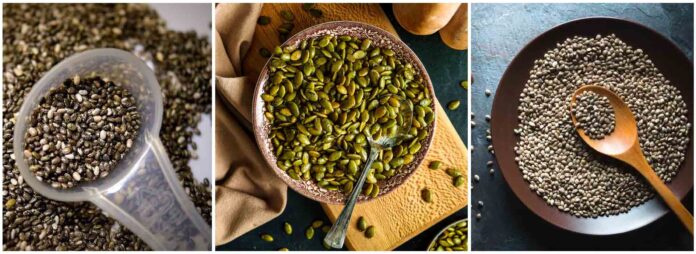When keeping the major foods like fruits, veggies and daily diet aside, Seeds are one of the most extensive sources of nutrients which one can have with their daily diet to fulfil their daily nutritional needs.
Here are some of the seeds which you can have this monsoon to add some extras in your diet:
Flax Seeds
Small brown seeds which were cultivated thousands of years ago. They are a good source of fibres, protein and healthy fats. One of the most well-known benefits of flax seeds is their high content of alpha-linolenic acid (ALA), an omega-3 fatty acid. ALA is important for heart health, brain health, and inflammation. Flax seeds also contain lignans, which are plant compounds that have antioxidant and estrogenic properties.
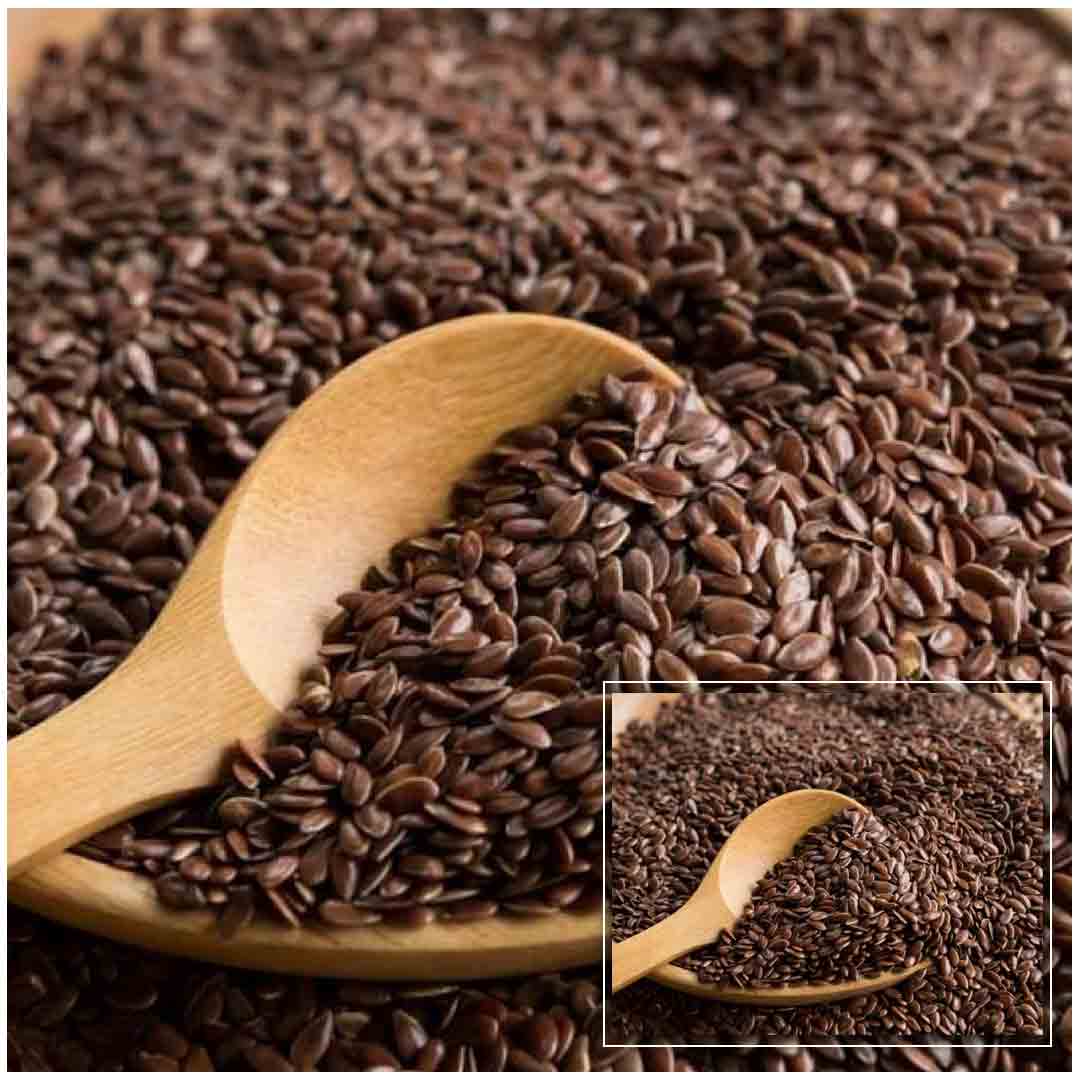
Health Benefits Of Flax Seeds
Heart health: Flax seeds can help to lower cholesterol levels and reduce the risk of heart disease.
Brain health: Flax seeds may help to improve cognitive function and protect against neurodegenerative diseases such as Alzheimer’s and dementia.
Inflammation: Flax seeds can help to reduce inflammation throughout the body, which is linked to a number of chronic diseases.
Cancer prevention: Flax seeds may help to reduce the risk of certain types of cancer, such as breast cancer and prostate cancer.
Digestive health: Flax seeds are a good source of fiber, which can help to keep you regular and improve digestive health.
Weight management: Flax seeds can help you to feel full and satisfied, which can make it easier to lose weight or maintain a healthy weight.
How to eat Flax seeds?
You can add them to oatmeal, yogurt, smoothies, or salads. You can also grind them into a powder and use them in baking.
Quantity
The recommended daily intake of flax seeds is 1-2 tablespoons. You can divide this amount up throughout the day.
Side effects
Flax seeds are generally safe for most people to eat. However, they can cause some side effects, such as bloating and gas. If you have any concerns, talk to your doctor before adding flax seeds to your diet.
Flax seeds are a healthy and versatile food that can be enjoyed in many different ways. They offer a number of health benefits, including heart health, brain health, inflammation reduction, cancer prevention, digestive health, and weight management. If you are looking for a way to improve your health, flax seeds are a great option.
Chia Seeds
Chia seeds are small, black or white seeds that have been cultivated for centuries in Mexico and Guatemala. They are a good source of fiber, protein, and healthy fats, and they have a number of health benefits.
The first presence of chia was recorded as early as 3500B.C. Later, the Aztecs used it. It was, in fact, one of the main foods in the Aztec diet. It was used in medicine, ground into flour, mixed as an ingredient in drinks, and pressed for oil. It was useful in that it could be stored for relatively long periods of time.
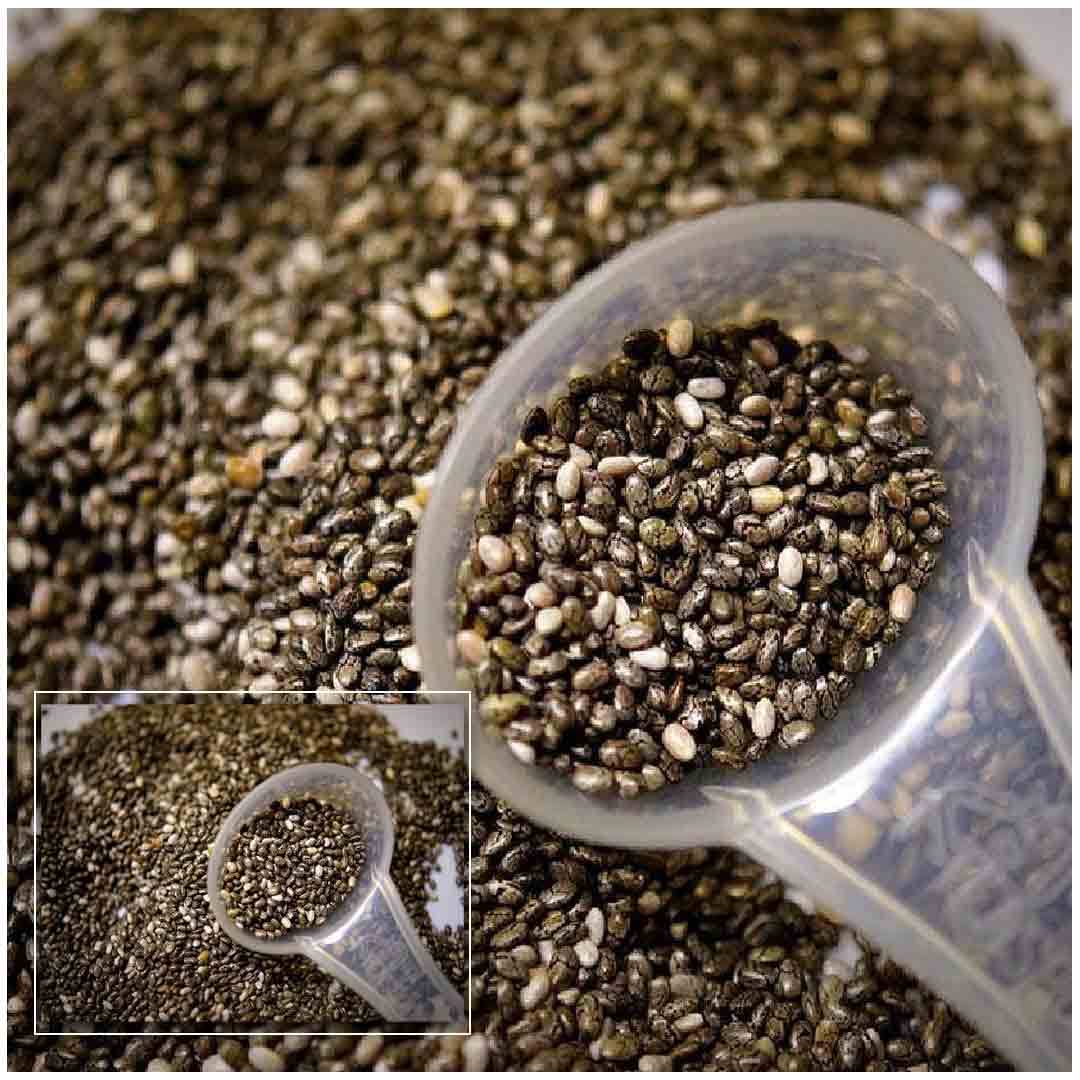
Health Benefits of Chia Seeds
Heart health: Chia seeds are a good source of alpha-linolenic acid (ALA), an omega-3 fatty acid that has been shown to help lower cholesterol levels and reduce the risk of heart disease.
Brain health: Chia seeds are a good source of antioxidants, which can help protect the brain from damage. They also contain choline, a nutrient that is important for brain function.
Digestive health: Chia seeds are a good source of fiber, which can help to keep you regular and improve digestive health. They can also help to absorb water and prevent constipation.
Weight management: Chia seeds can help you to feel full and satisfied, which can make it easier to lose weight or maintain a healthy weight. They are also a good source of protein, which can help to boost your metabolism.
Blood sugar control: Chia seeds can help to slow down the absorption of sugar into the bloodstream, which can help to keep blood sugar levels stable. This is beneficial for people with diabetes or prediabetes.
Energy levels: Chia seeds are a good source of complex carbohydrates, which can provide you with sustained energy throughout the day. They are also a good source of fiber, which can help to keep you feeling full and satisfied.
How to Eat Chia Seeds?
There are many ways to eat chia seeds. You can add them to oatmeal, yogurt, smoothies, or salads.
Quantity
The recommended daily intake of chia seeds is 1-2 tablespoons.
Side Effects
Chia seeds are generally safe for most people to eat. However, they can cause some side effects, such as bloating and gas. If you have any concerns, talk to your doctor before adding chia seeds to your diet.
Chia seeds are a healthy and versatile food that can be enjoyed in many different ways. They offer a number of health benefits, including heart health, brain health, digestive health, weight management, blood sugar control, and energy levels. If you are looking for a way to improve your health, chia seeds are a great option.
Pumpkin Seeds
Pumpkin seeds are a type of edible seed that is found in the center of pumpkins. They are a good source of protein, fiber, and healthy fats, and they have a number of health benefits.
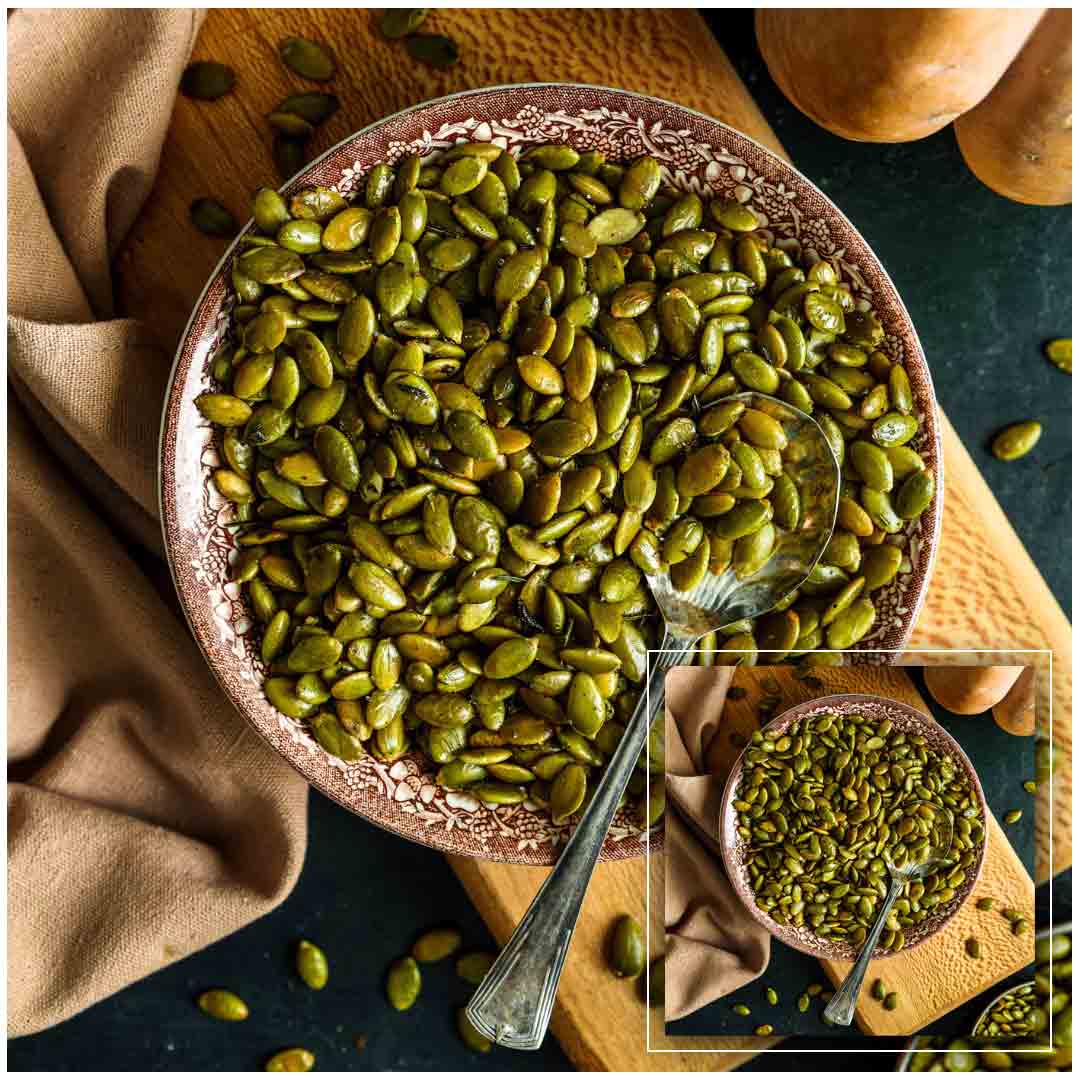
Health Benefits of Pumpkin Seeds
Heart health: Pumpkin seeds are a good source of magnesium, which is important for heart health. They also contain omega-3 fatty acids, which can help to lower cholesterol levels and reduce the risk of heart disease.
Prostate health: Pumpkin seeds have been shown to help improve prostate health in men. They contain compounds that can help to reduce inflammation and improve urine flow.
Digestive health: Pumpkin seeds are a good source of fiber, which can help to keep you regular and improve digestive health. They can also help to absorb water and prevent constipation.
Weight management: Pumpkin seeds can help you to feel full and satisfied, which can make it easier to lose weight or maintain a healthy weight. They are also a good source of protein, which can help to boost your metabolism.
Antioxidants: Pumpkin seeds are a good source of antioxidants, which can help protect your cells from damage. They contain compounds such as beta-carotene, vitamin C, and zinc, which have all been shown to have antioxidant properties.
How to Eat Pumpkin Seeds?
There are many ways to eat pumpkin seeds. You can eat them raw, roasted, or cooked. You can also add them to smoothies, yogurt, salads, or baked goods.
Quantity
Pumpkin seeds are generally safe for most people to eat. However, they can cause some side effects, such as bloating and gas. If you have any concerns, talk to your doctor before adding pumpkin seeds to your diet.
Pumpkin seeds are a healthy and versatile food that can be enjoyed in many different ways. They offer a number of health benefits, including heart health, prostate health, digestive health, weight management, antioxidants, and other benefits. If you are looking for a way to improve your health, pumpkin seeds are a great option.
Hemp Seeds
Hemp seeds are the seeds of the hemp plant, Cannabis sativa. They are a good source of protein, fiber, and healthy fats, and they have a number of health benefits.
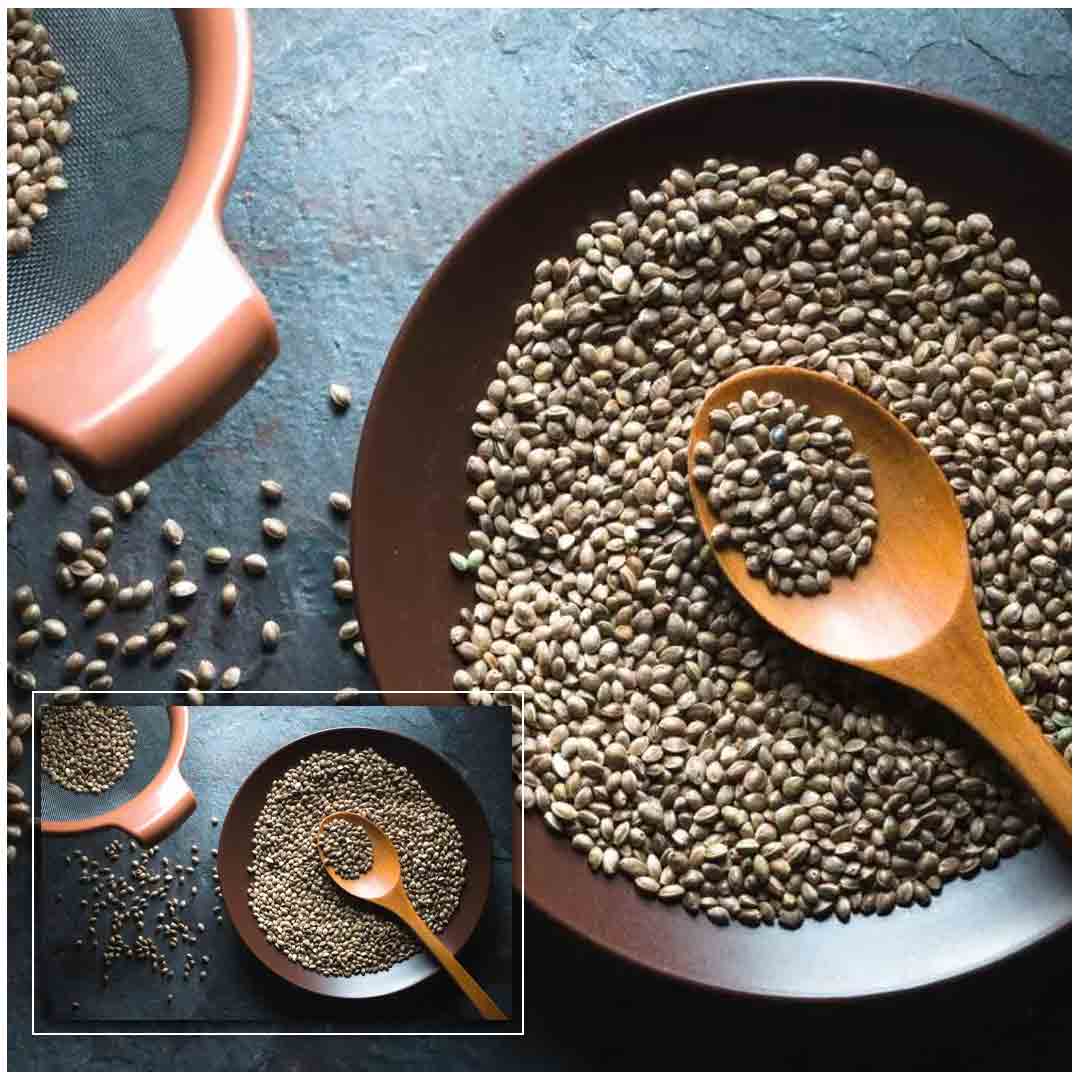
Nutrition of Hemp Seeds
Protein: Hemp seeds are a complete protein, meaning they contain all nine essential amino acids.
Fiber: Hemp seeds are a good source of soluble and insoluble fiber.
Healthy fats: Hemp seeds are a good source of omega-3 and omega-6 fatty acids.
Minerals: Hemp seeds are a good source of magnesium, phosphorus, potassium, and zinc.
Vitamins: Hemp seeds are a good source of vitamin E and vitamin B6.
Health Benefits Of Hemp Seeds
Heart health: The healthy fats in hemp seeds can help to lower cholesterol levels and reduce the risk of heart disease.
Brain health: The omega-3 fatty acids in hemp seeds can help to improve cognitive function and protect against neurodegenerative diseases such as Alzheimer’s and dementia.
Inflammation: The healthy fats in hemp seeds can help to reduce inflammation throughout the body, which is linked to a number of chronic diseases.
Cancer prevention: The lignans in hemp seeds may help to reduce the risk of certain types of cancer, such as breast cancer and prostate cancer.
Digestive health: The fiber in hemp seeds can help to keep you regular and improve digestive health.
Weight management: The protein and fiber in hemp seeds can help you to feel full and satisfied, which can make it easier to lose weight or maintain a healthy weight.
How to Eat Hemp Seeds?
There are many ways to eat hemp seeds. You can add them to oatmeal, yogurt, smoothies, or salads. You can also grind them into a powder and use them in baking.
Quantity
The recommended daily intake of hemp seeds is 1-2 tablespoons. You can divide this amount up throughout the day.
Side effects
Hemp seeds are generally safe for most people to eat. However, they can cause some side effects, such as bloating and gas. If you have any concerns, talk to your doctor before adding hemp seeds to your diet.
Hemp seeds are a healthy and versatile food that can be enjoyed in many different ways. They offer a number of health benefits, including heart health, brain health, inflammation reduction, cancer prevention, digestive health, and weight management. If you are looking for a way to improve your health, hemp seeds are a great option.

